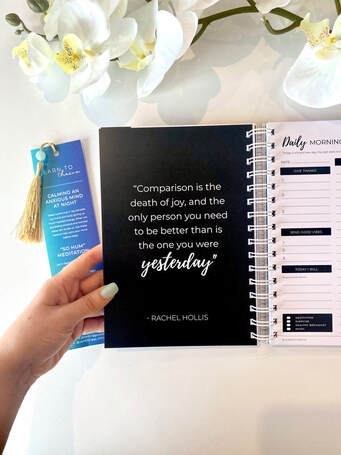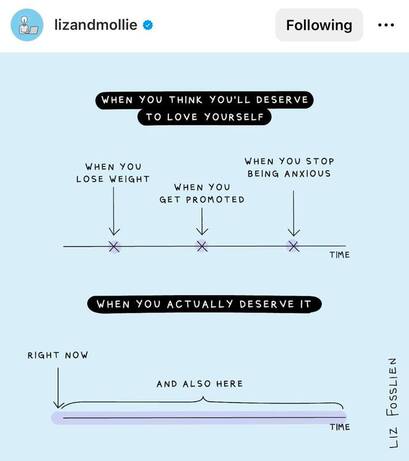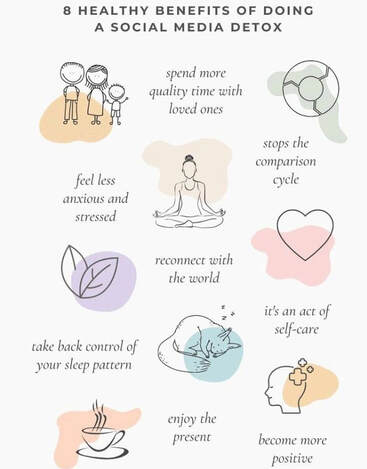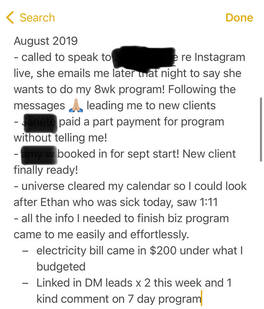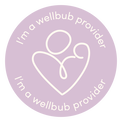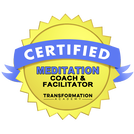AuthorJanel Briggs Categories
All
|
Back to Blog
Have you ever found yourself wishing that someone in your life would change, thinking it would make everything so much better? Many women experience stress, mental and emotional strain as a direct result of the other people's behaviours and actions. "IF ONLY he/she would do THIS, then everything would be OK!"
If they would just make "this change" then our life would greatly improve, and I could stop worrying. I know, how amazing would it be if the people we cared about would do what we want them to all the time!! But here's the sad truth: You can't force anyone to change.No matter how much you want it for them or love them, what you say or do for them... only they can DECIDE to make changes in their life. You cannot control their choices or outcomes. And all that pushing will ultimately cause you more resentment, heartache, stress and pain. Which I know is a super hard to hear. I've been there too. I have multiple people in my life today I would LOVE to see change their ways - but a decade of trying to change them broke me and I had to learn to let it go. I've also seen this frustration in a few of my past coaching clients' relationships. Where women who have journeyed on the path of self-discovery for themsleves now want the same for their partner, sibling, child, or partent. However, in attempting to push them to "see the light" and change their habits and behaviours, they've ended up causing themselves angst. This is what I can share: You can't change them, but you can be the inspiration for their change. Perhaps even a catalyst, by showing them what is possible. The decision for someone to change their life has to be their own, otherwise the transormation may be fleeting or won't stick long term. If you can't walk the path for them, what can you do? Continue to focus on your own personal growth and well-being. Be the light in their life. From my experience it takes patience, but in time you may notice small shifts and improvements both in your life and theirs. Here are 5 actions you can take:
True power is found in changing ourselves and inspiring the change we wish to see in others.  About the Author: Janel Briggs is a NLP and Timeline Therapy Practitioner on a mission to support women across Australia and Singapore in overcoming their professional anxieties, imposter syndrome, fears and insecurities to build unwavering confidence and self-belief. Mindset Coaching is about learning how to become fearless and level up your life and career! Connect with Janel on social media via Linkedin or Instagram.
0 Comments
read more
Back to Blog
Ever noticed how one little change can set off a chain reaction that shakes up your whole day? Seriously, it's crazy how something as small as a negative thought, or a random comment from someone's grumpy mood can turn a great start, into a bad day. Think about it - ever had one of those mornings where you woke up on the wrong side of the bed? >> Maybe you spilled your coffee, missed your bus, or your child had a stage 5 meltdown over his corn flakes (true story! lol). And then, BAM! That bad mood tags along like a dark cloud, messing with your interactions and choices all day long. It's like that one negative morning experience defines ALL the experiences of your day. And your thoughts then decide to throw a party and invite all your complaining friends in to gripe all day. On the flip side have you also noticed how one tiny 'thank you' or a kind compliment can turn things around and give your mood a 180-degree boost. It's like a burst of sunshine breaking through the clouds. Suddenly, you're smiling, your steps feel lighter, and you're ready to take on the world! But here's the cool part. We do have a choice; you can choose to react and response, OR NOT.We often feel like we have NO CONTROL over they day, our mood or emotions. So we go on reacting and responding to everyone and everything around us. Imagine what could happen if we stopped giving the negative experience, thought or comment energy?? Here's a few examples of how to flip the script in your mind and rewrite the day: -> Your spill your coffee - old thought: "I am such and idiot, I don't have time for this, this is going to ruin my day!" (self-criticism) New thought: "Woops, well that is annoying - I'll go change now." (compassion) You encounter someone who is rude/grumpy - old thought: "What a jerk, how dare they speak to me like that, why did they have to X - I'm so mad!" (transferred anger) New thought: "Wow, they must be having a rough day" (deflect the emotion) Missed the bus - old thought: "Oh great, now I'm late and today is going to hell." (frustration) New thought: "That's ok, I'll just have to get the next one - nothing else I can do." (acceptance) And, for the women who just feel like they wake up on the "wrong side of the bed" every day ...Learn to Thrive ... my morning journal is the ONLY answer for that!Here's why: Every day you have the opportunity to rewrite your day, by following the prompts to set an intention for your day. You begin your day with his simple intention affirmation: "Today I will .... "
By creating an intention for your day you flip the script and become the writer, instead of the audience. I know it seems TOO SIMPLE to be true, but it works. Try it, and see? Ask yourself this: What is my intention for this week? What quality do I want to bring into today?
Back to Blog
Finding motivation, and achieving a work-life balance are two topics that come up a lot in my coaching, and truthfully, it’s taken me a long (very long!) time to work out the formula to this problem. I don’t know if you can relate to this, but I’ve always been the sort of person who is “ALL IN 100%” on something. In my corporate career if I was working on a deadline, I was ALL IN, meaning motivation for ANYTHING else in my personal life got pushed to the bottom of the list. Later, owning my own business in the early years, if I was working on a project, or studying, or exploring a new idea, I was ALL IN and my motivation for healthy habits like exercise, eating well or sleep got skewed. And if I was focusing on living, enjoying personal time OFF work, travelling (or at times battling my own mental health journey) - then I was completely checked out and unmotivated for work, exercise or ANYTHING else! If you are an ALL IN kind of person, I want you to know that this isn’t necessarily a bad thing. There is no doubt, you’re a go getter and have probably achieve great outcomes! Until… you hit burnout, or the all or nothing mindset becomes an issue and other areas of your life begin to fall apart. What I realised is that my mind was stuck believing these three things: 1. TO FEEL THE BENEFITS OF THE ELUSIVE WORK-LIFE BALANCE MEANT MY TIME HAD TO BE DIVIDED IN EQUAL PARTS.So, in order to be “in balance” I thought I had to dedicate 1/3 of my time to work, 1/3 of my time to family, 1/3 of my time to personal every week. However, I call this elusive as this is an unrealistic goal. Nothing in life happens in equal parts! As humans we are cyclical beings. Every year our planet runs in seasons – no matter where you live there is a cycle and a change of season. Some countries like here in Asia has 2 seasons (dry/wet), where the majority of the rest of the world has 4 distinct seasons. It's planetary. As women our body runs in hormonal cycles, which means our energy levels will always be in flux. Science tells us that there are certain times within our hormonal cycle that are better for productivity, exercise, and rest. It’s biological. When I started to understand and accept that life also runs in cycles and seasons, I began to feel more motivation and my mind expand with self-compassion. Consistent MOTIVATION is cultivated from self-compassion, NOT GUILT. In the cycle of life there will be months where work takes priority, and weeks where family takes priority, and then other times of the year when your personal and health goals will take priority. Ask yourself this: What is the most important thing you need to be focusing on - right now this week or month? Now, if I am in a season of increased work or study, then it’s I allow myself to create boundaries around my energy and reduce plans, commitments or tasks in other areas of life. Similar for family and person life. The key is to:
Flowing within the cycle you are in, instead of berating yourself for not doing X or achieving X - means you’ll be more motivated. 2. I DIDN’T UNDERSTAND HABIT CHANGE AND BELIEVED I WAS UNMOTIVATEDLet’s talk about habits for a minute. We learn habits through our conditioning, or from repeated past experiences. Our habits become imprinted as patterns or programs within our nervous system and brand, stored within the 95% unconscious part of our mind. Once a habit (good or bad) is formed it occurs outside of our conscious awareness, and will continue operating the same program until a time where you bring the habit into your conscious awareness, and create a shift or change. We all get so frustrated with ourselves and inflict so much guilt whenever trying to break “bad habits”. But, I think the main point we forget is that if habits are learned from repeated past experiences – then we have to CONSISTENTLY repeat the experience, until which time the unconscious mind re-programs a new pattern. The first step to habit change is always AWARENESS. Becoming consciously aware so that you can see these patterns and "wake yourself up" to a new way of living. As yourself this: What habits in your life today are working for you, or against you? 3. I COULDN’T LOVE, BE PROUD AND APPRECIATE MYSELF UNTIL I HAD ACHIEVED (XYZ) There is nothing more un-motivating that trash talking yourself. I call GUILT the swampland of the soul – guilt will always keep you STUCK in the place you are in. If your mind is on a loop of dishing out rude comments, telling you how bad you are and filled with negative self-talk – then you are ALWAYS going to feel unmotivated to do the THING. No matter what the THING is! Self-acceptance, and taking action are how you are going to stay motivated and find your version of work-life balance. As yourself this: Wherever you are right now, love yourself for the cycle you are in. Photo credit: @lizandmollie There is nothing more un-motivating that trash talking yourself. I call GUILT the swampland of the soul – guilt will always keep you STUCK in the place you are in. If your mind is on a loop of dishing out rude comments, telling you how bad you are and filled with negative self-talk – then you are ALWAYS going to feel unmotivated to do the THING. No matter what the THING is! Self-acceptance, and taking action are how you are going to stay motivated and find your version of work-life balance. As yourself this: Wherever you are right now, love yourself for the cycle you are in. And if you don’t know where to start to bring kinder thoughts into your life… begin with reading, writing or speaking positive affirmations every day. Powerful "I am" and affirming statements. This healthy mindset habit that is going to help you to feel more motivated and shift your mindset to having more positive thoughts. >> If you're new to this concept I have a free guide to help you get started >> DOWNLOAD MY FREE AFFIRMATIONS LIST HERE THIS is the one habit you want to start, and even better - it's completely free. As you navigate and redefine what work-life balance looks like for you personally take this newfound awareness and embrace the cycle or season you are in. Whenever you find yourself off chart, you can always reset. But, remember the foundation of your motivation will be built on self-compassion, not guilt.  About the Author: Janel Briggs is a NLP and Timeline Therapy Practitioner on a mission to support women across Australia and Singapore in healing their professional anxieties, insecurities and imposter syndrome to build unwavering confidence and self-belief. The goal is to level up your life and career by learning how to to live fearless and anxiety free! Connect with Janel on social media via Linkedin or Instagram.
Back to Blog
Escaping the Trap of a Lack Mindset19/6/2023 Do you ever catch yourself fixating on what is lacking in your life?  All the things you don't have... all the things that aren't going well for you? "I don't have enough X (money, time, friends) Why can't I have a new X (job, relationship, car, house, handbag, etc) like so-and-so?!?! I never get the X (good opportunities, promotions, luck)" Leaving you feeling unfulfilled, and on a constant churn of stress while pushing and striving for more? It's easy to fall into the trap of longing for all that we don't have. I've certainly done it. Too busy looking over someone else's fence at what they're doing, instead of focusing on being present in my own backyard. We live in a world that often emphasises comparison and scarcity; Social media is a huge trigger. If you've been wondering, how to get out of this lack mindset and feel good about your life, you probably don't realise that you have a few things within your control today, that can help you shift your mindset. Even if you stay in exactly the same position you are in. Here 's how to get started: 1) Cut Down Social MediaIf you are following accounts that make you feel "ick" after scrolling, then mute these accounts for 30 days. See if you missed the content?? If you did, then go back to it and re-test how you feel after a break. If you didn't miss it at all, and you noticed a positive shift ... then unfollow the account. Social media's general purpose is for connection and entertainment. If you're not feeling those things, then you won't miss anything that was good for you! (original source unknown, found Instagram @itssarahbryant) 2) GratitudeI know, I know... everyone talks about gratitude. But that's because it works! Science tells us that when you shift your focus to appreciate what you already have, you'll feel MORE content. "I am grateful for... " Write down 3 things you are grateful for every day, on paper, in a journal, or your phone. I've even had a client who prefers to voice note her gratitude while she walks in the morning! Love it. A few years ago I read a phenomenal book by Louise Hay, called “You can Heal Your Life”. Louise is the grandmother of self-help books and the queen of affirmations and gratitude. One chapter in the book was really transformation for me. Louise talked about her own feelings of lack around money, and fear of her finances. To combat this anxiety and overwhelm she use a small shift in language that had a huge impact. Each and every time a bill arrived in her mailbox; she would BLESS THE BILL and say: "Thank you for the money in my account to pay for this bill. I appreciate this bill, knowing I have the funds to pay for it." And, somehow she would find the money to pay for the bill, without stress. Wow, what a concept! Even reading this - how different does that feel? 3) Celebrate
We also usually are not comparing apples with apples. We get stuck looking at other people’s success and comparing our apple experience with their orange experience! It just doesn’t make sense. Celebrate your big and small steps. “I am proud of myself for … “
Look around you right now. Where are you sitting? What do you already have around you right now? Little moments happen every day that are proof that you are on your way to abundance, look for them and celebrate those moments. 5 years ago, I used to DREAM of the coaching business I have now! Imagine if I had of given up … because I got stuck in comparison and lack? There was healing, learning and growth I needed in order to become the Coach I am today. It was all worth it! Author Gabby Berstein in her book Super Attractor has this wonderful concept she uses for celebrating and focusing on abundance. It’s called “Gathering Twigs”. You create a list on your phone and every time you have a win, something good happens, or there is a sign that shows you that you are on the right track, you write it down. I did this FOR YEARS. And it works. Anytime I felt lack or comparison, I would start a new list. Looks like this:
Comparison and judgement lead to resentment. Resentment is like anger, it can be toxic and poisonous. It will eventually eat away at the container it is in. If you are walking down the street and notice a woman with great shoes, and immediately you feel envy - compliment her. Either out loud to her, or in your mind. Sounds like: “Wow, amazing shoes, I love them”. If you are scrolling social media and notice someone who is celebrating and achievement and you immediate feel less than, or upset that you don’t have what she has – celebrate her. Sounds like this: "Well done, that's amazing. Good for her getting that new (job, relationship, house xyz). I know I am on my way to getting that soon too." See how different it feel? Remember, your journey is unique. You can and you will get to where you want to be. Staying present in your life, focusing on gratitude and celebrating your accomplishments is how you will get there. All the best, JB
Back to Blog
Have you ever found yourself seeking happiness through external validation? For years, I placed my happiness in the hands of others, constantly thinking that if certain people or circumstances aligned in a certain way, then I would finally be happy. I would catch myself saying things like, "If my parents, sister, husband, son, boss, colleague, or X did THIS, then I would be happy." I tied my happiness to achieving good grades, receiving recognition at work, earning a promotion, or even reaching specific milestones in my first business. My joy was dependent on external factors and the validation they provided. The problem was, and what I've realised through Mindset Coaching, is that MY long term happiness is an internal job... I am the only one that can change it or make it happen. Yes, the external factors could give me a temporary hit of happiness, BUT they could never give lasting contentment. Here's why: 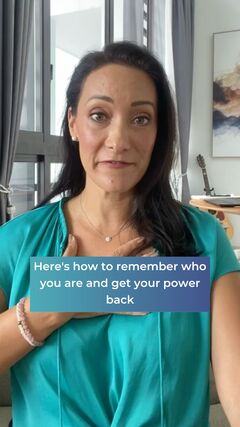 * We cannot control the external factors! Or other people's opinion of us * We cannot control how much or little someone loves us! Or HOW they specifically show us love The key was... I had to learn to know, love and accept MYSELF (all facets and parts of me) - in order to find my self-worth and experience a contentment that I never even knew existed. And the most amazing thing happened, when I stopped seeking external validation... I got my power back! In this video, I share the three crucial steps I took to break free from the cycle of seeking external validation and find true self-worth. Let me detail the 3 steps I took for you here: 1. Get clear on what is in your control and what isn'tI learned that I cannot control other people's actions, reactions, behaviours or even the way they love and treat me. I cannot control every single outcome, to every situation in my life. There will be uncertainty, there will be change, there will be things that do not always go my way. No matter how hard I work or try to make it different. I can only control what is within my circle - my mind, my body, my emotions and my behaviours. How I think, reaction and respond is up to me. 2. Start your day with a focus on self-careI started my day with a simple shift. In order to love myself fully and build self-worth I need to be the most important person in my world, my needs matter. My own self-care has to be a priority. I decided to wake up 15 mins earlier, to sit listening to a short 5 min guided meditation and I did 10 mins of journaling positive affirmations - something I had never done before! (If you are new to meditation I have a few to help get you started here) I spent 10 mins stretching and doing yoga, then ate a healthy nourishing breakfast and I listened to music while getting ready for work. I found this short 20-30mins of "me-time" first thing in the morning would calm and refocus my mind, before the chaos of the day began. When I filled my "needs cup" first, I found I wasn't looking to other people or external factors to fill my own needs. 3. Do one thing this week that brings you JOYI began a new habit where once a week I would do something that brough me joy - something just for me. Where I didn't have to do anything for anyone else. You see, I began to remember who I was outside of all the labels and hats I wore. Outside of the expectations, demands, stress and achievements of work. I started to love and reconnect to my inner child, the part of me that had gotten lost from putting all my happiness eggs outside my own basket. The part of me that was waiting for someone else to love, care and adore me, the way I wanted. It's an empowering feeling not waiting for someone to give you everything you need. I began to breathe easier and smile more often. Life felt less heavy and more enjoyable. I realise that it had to start with me, just like it has to start with you. And I am here to tell you - YOU can absolutely do it too. JB  About the Author: Janel Briggs is a NLP and Timeline Therapy Practitioner on a mission to support women across Australia and Singapore in healing their professional anxieties, insecurities and imposter syndrome to build unwavering confidence and self-belief. The goal is to level up your life and career by learning how to to live fearless and anxiety free! Connect with Janel on social media via Linkedin or Instagram.
Back to Blog
As you probably know by now, our LIFE is a journey filled with countless ups and downs, twists and turns, and unexpected challenges within our story. Along this path, we often encounter mental and emotional roadblocks that hinder our progress, cloud our judgment, and leave us feeling stuck. Whether it's confusion about the next step, anxiety about making the right decision, hitting a creative or career block, a lack of motivation, or crippling self-doubt, the mind spins: Where am I going? Am I happy? What am I doing? When will I be happy? These obstacles can be frustrating and overwhelming, making it very difficult to move forward. Previously, before experiencing mindset coaching, I personally would have notched a roadblock up as failure. My mind had been programmed from a young age, that anything less than 100% was failure.
I would be totally stressed out, spiralling into anxiety overthinking all the WHY's and WHAT IF's... ultimately not feeling good enough. Which never EVER helped the situation! When negative emotions and fear rule the situation - it makes EVERYTHING harder. What I've learned since then is that hitting a mental or emotional roadblock does NOT mean I am a failure, or it’s the end of the road. It's actually a fork in the road, a good check in point. Here's why: An emotion in itself is a feeling, and feelings are not facts. The study of NLP (Neuro-Linguistics-Programming) tells us that we experience our first negative emotions in early childhood, typically 0-7 years old. If the negative emotion that we felt for the very first time (like fear, anger, hurt, guilt or sadness) was too confusing for our young mind, or left unresolved, the memory of that experience (and our reaction or response to it) is stored within the unconscious part of our mind. The part of our mind where our habits and patterns are formed, that essentially runs on auto-pilot. The mind then uses this past experience as a reference point for each time that specific emotion is arises in future. Unconsciously filtering new information coming in and present-day experiences on that past trigger point, even though we are no longer a child. The mind unconsciously in a split second says “remember that time you felt scared about X when you were young? This is JUST LIKE THAT”. When in 99% of circumstances it is not. So, our response as adults now to the fear is bigger and can often be out of proportion to the context of the situation in front of us. Have you ever wondered “Why am I so fearful of X, when other people are not? Why do I get so angry and frustrated about X, when so-and-so doesn’t even care? Why can’t I let go of it?” This is why, shown in my example above, I continued to notch up every “No” in my life as a failure. My mind had unconsciously stored an experience of failure when I was 7yo. From that moment I learned to react and respond with fear in a specific way any time there was a possibility of failure. This inhibited me in many ways throughout my adult life. The specific coaching that helped me to realise all of this and release my fear of failure and reprogram the self-limiting belief I had formed that I was not good enough, was the transformational process of TimeLine Therapy®. You can watch my video below to learn more about TLT or read about it here. Now thankfully, when a roadblock presents itself, I like to see the situation as a unique opportunity for inner growth and self-reflection. I am no longer trapped by fear of failure. And this is what I want for you too. It is the reason why just 6 months after working with a Mindset Coach myself in 2017, I went on to retrain and become a NLP and TimeLine Therapy® Practitioner – so I could pay this gift forward to other women just like me. Where do we start when we hit a mental roadblock? Absolutely, we need to honour our emotions and express them. There is a saying I like to remember: “What we resist - will persist”. You can only deny emotions for so long. We must begin to unpack the emotion and the trigger, and find healthy ways to release the emotion. The most powerful way to do this for me is to journal my thoughts. And instead of falling to pieces I stop and ask 3 simple questions to check in: 1. What emotions am I feeling? Why is this situation causing me to feel this way? 2. What are the options in front of me? 3. What is this situation trying to teach me? Or, what can I learn from this? When you are learning you are growing, and you are NOT failing. It's during these challenging moments that we have the chance to zoom out, look for higher perspectives, and tap into our intuition to find the solutions to move forward with ease. Conquering the fear of failure always begins with a process of self-discovery. The inner work for emotional healing may require patience and perseverance, but please know you are not alone! There is guidance and coaching available to support you, whenever you are ready.  About the Author: Janel Briggs is a NLP and Timeline Therapy Practitioner on a mission to support women across Australia and Singapore in healing their professional anxieties, insecurities and imposter syndrome to build unwavering confidence and self-belief. The goal is to level up your life and career by learning how to to live fearless and anxiety free! Connect with Janel on social media via Linkedin or Instagram.
Back to Blog
Have you ever started a new habit, or made a big change to your eating and exercise routines, only to quit a or few days or a week into it?? You really WANT the end result, you know that changing your habits will give you that end result, BUT making those changes EVERY day just feels so overwhelming or exhausating... I think we that we sometimes forget that: Old habits take time to shift, and new habits time to form. Nothing happens immediately. Our habit self is formed through repeated past experiences. Continual repetition of the same experience over and over again biologically imprints the habit into our brain and our nervous system. There is a learning process for forming each new habit. We have to RETRAIN our mind AND our body. And it's likely that we may not get it right first time! As we've been operating on this same cycle or habit pattern for a very long time. Where I see the biggest mindset shifts need to happen for life changing success: 1) Reframing thoughts of failure to compassion If/when you fall off the wagon it's so easy to notch it up as a "failure". Giving the green light to quit and allowing all the negative thoughts in "you can't do this, it's too hard, why try?". But instead... Why not treat yourself with compassion? Accept that everyone slips up, and use it as an opportunity to learn from it. Asking: What is working here and what isn't? * Did you make the changes and process fun? Or did you dread it? * Did you look at the change as a great opportunity? Or as a punishment? * How could you make this process easier and more enjoyable? 2) Small steps, give us big results long term What can you do to make the changes less "overwhelming"? Did you take on TOO MUCH change at once and exhaust yourself? Instead of trying to make a number of BIG changes all at once, is there a baby step you can start with? Start small! Break it down, and build your habits in blocks. What is one step you can take this week? Focus on that ONE THING for the next 3-4 weeks until you get really good at it. Then, you add another step for the following 3-4 weeks. If your habits don't line up with your dream, you need to either change your habits OR change your dream. - John Maxwell The truth is, habit change ultimately feels hard because it requires us to break free from our automatic behaviors and deeply ingrained patterns. Our brains are wired to seek out familiarity and routine, making it difficult to create new habits and replace old ones. However, if we can approach the habit change with more self-compassion and make it esier with smaller more achieveable steps it is possible to create lasting change! By doing so, we can break free from old patterns and live a happier, healthier, and more fulfilling life. If you have any questions or comments about this topic please reach out! [email protected]  About the Author: Janel Briggs is a NLP and Timeline Therapy Practitioner on a mission to support women across Australia and Singapore in healing their professional anxieties, insecurities and imposter syndrome to build unwavering confidence and self-belief. The goal is to level up your life and career by learning how to to live fearless and anxiety free! Connect with Janel on social media via Linkedin or Instagram.
Back to Blog
Our minds are powerful and valuable, but they can be tricky to master when situational anxiety flares up. Some people find they thrive in new experiences and love meeting new people. If you are one of those people, my hat goes off to you! Like many others, embracing the new is something I have had to learn how to love. If you’ve ever tried to support a loved one with anxiety, you’ll know that new events and situations where they are standing an abyss of so many unknown’s and all the uncertainty their fear can be debilitating. When it begins to unfold in front of us it’s like the person is fighting a battle we can’t see. We don’t exactly know what to do, or how to fix it. We want our loved one to listen to reason and be OK. But their fear can be so convincing that they believe something (everything!) bad is going to happen. As a Mindset Coach I want to share with you a proactive tool to help you to help them deescalate the situation, using a concept called reframing fear to excitement. REFRAME FEAR - TO - EXCITEMENT This tool will help your loved one calm the mind and move forward feeling more excited and confident. 1. Listen for the core language of anxiety. Words can be your guide to understanding when a person’s fear starting to building. A tell-tale sign is: WHAT IF (a bad thing happens)? WHAT IF (a negative outcome)? WHAT IF (resistance language "I can't") OR when you hear the person worst case scenario planning. (plan A, B, C, D) 2. Immediately get them to stop and ask them to take a breath. This will halt the mind bringing their awareness back into the body, and circumvent the thought process. 3. Reframe their language. This may take a little practice but start by repeating their “What IF” statement BUT instead of a bad ending you insert a good, or happy ending for them. Shifting the mindset to a positive outcome. “What IF it all turns out better than you could imagine? 4. Make the “unknown” known. Anxiety often sparks due to a fear of the unknown or uncertainty. Ask yourself and affirm what is known. What do we know about this situation? What can we be certain of? What is within our control. 5. Help them to understand that anxiety and excitement have the same vibrational feeling in the body. “You must excited? Imagine all the cool people you are going to meet, and all the fun you will have. Those butterfly’s show up when you get excited right?” 6. Reaffirm the excitement and positive outcome. “I am excited for you! This is going to be so fun. You’ll have a great time. Everyone will love meeting you, you have so much to offer.” EXAMPLE OF THIS TECHNIQUE IN ACTION:Recently, my almost 10yo son joined a new activity after school in Singapore with a group of kids that were older than him on a subject he was lacking in confidence. Even though he originally said he wanted to do this activity, the day of the first group event was looming, and he was beginning to drag his heels saying he no longer wanted to go. I get it, kids making friends and meeting new people can be overwhelming. But as a family we decided a long time ago to always make an effort to give it 1 chance. Then we can decide after that whether we keep it or ditch it. Usually, we keep it – as we are not in the habit of letting our fear of the unknown rule our lives anymore. In the car on the way to there, I could see his mind start to tick, tick, tick. He began to ask:
Immediately I knew as soon as he said “WHAT IF” this was fear talking, not his rational mind. His core language trigger to me was the phrase “What IF” followed by a resistance word (don’t, can’t) and a negative outcome. I could hear his anxiety building and this was a great opportunity to help him de-escalate the fear. I asked him to stop right there and take a breath. We took a big deep breath together. I then proceeded to use the power of positive language to reframe and shift his mind from the most terrible outcome he is imaging, to a good ending. I repeated his “What IF” back to him with a positive outcome:
I then helped him to make the “unknown” known by focusing on a previous experience.
I reminded him that fear and excitement have the same vibrational feeling of alarm in the body. “You must be feeling those excited butterflies in your tummy again. Excited butterflies come when we do fun and exciting things right?” We walked into the building and up the escalator into the activity room, we took the long way to get there - moving the body is very helpful to release stress hormones. We arrived and he turned to me and said “Mum, I am excited about this 😊”. I said, “Yes buddy, I am excited for you too – this is going to be so much fun!”. And it was fun, he had a blast. We pre-framed it to be a good experience. I picked him up an hour later and he raved about the activity and everyone in it. He smashed the activity and cannot wait to go again. We pre-empted for a good ending and primed his mind for fun. He could now feel the excitement buzzing withing his body INSTEAD of the fear. The entire process took us 5 minutes. You can absolutely do this too! With children AND adults. It’s so easy to allow fear to jump into the driver seat and take control of new situations where there are so many unknowns. But every time we do, fear wins. It takes our mind away from the joy and the fun of living in the present moment. When we treat our loved ones who struggle with anxiety with a level of compassion that also takes positive action we can begin to help them to learn how to bring their own anxiety alarm down and enjoy new experiences for what they are, FUN. I hope these suggestions help you support a loved one with anxiety. If you have any questions or comments, please reach out. If you or someone you know is sick of struggling with their anxiety I run a program called “Freedom from Anxiety” for women who are ready to feel more carefree and confident in all areas of their life. To learn more about Janel's Freedom from Anxiety Program 1:1 Coaching head here.  About the Author: Janel Briggs is a NLP and Timeline Therapy Practitioner on a mission to support women across Australia and Singapore in healing their professional anxieties, insecurities and imposter syndrome to build unwavering confidence and self-belief. The goal is to level up your life and career by learning how to to live fearless and anxiety free! Connect with Janel on social media via Linkedin or Instagram.
Back to Blog
Do you feel like you move through each day, month, year at the speed of light... but never actually achieve anything? I've been hearing this a lot from my new clients this year, like no matter what they do they still feel so far behind on those big life goals and dreams. Typically, when I hear a similar thought process a few times, I know it's valuable to share wider. So, I am giving you the exact tool I give to my clients in private coaching to increase their overall sense of well-being when goal-getting. It begins with a simple question: Q: When was the last time you celebrated YOURSELF and how far you have already come? The mind can so easily get stuck on "all the things we haven't done" or are "yet to accomplish". The ego telling us we are unorganised, lazy, and need to be "more productive". Essentially the mind's job is to assess for risk but, as you probably know these thoughts cause us to feel GUILT, perhaps like we aren't good enough. And guilt is 100% the biggest showstopper to any good action! Guilt creates resistance. We are less likely to do the things we want to do, when guilt is in the drivers seat. So, to cut the guilt and create more momentum it's time for a reality check. Here is the tool: At the end of each week take 5 minutes to sit and reflect. Grab a cuppa and a notebook and write down the answer to 3 questions: 1. What went well, or what were you proud of last week? |
|
Stay Connected
Subscribe and be the first to access new blog content news & updates. |

 RSS Feed
RSS Feed


